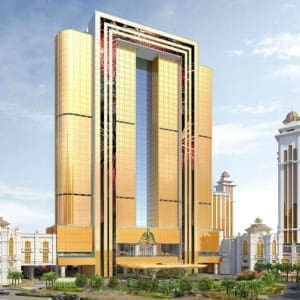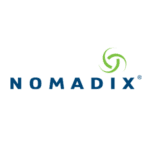In this article, we set out to find out what’s next for luxury brands in hospitality. What are the most promising examples and sectors that luxury brands are entering? The frontiers of how luxury can be experienced are being widened resulting in greater market presence and richer multisensorial experiences.
Beyond luxury brand cafés, hotels and spas
Luxury brands, usually selling fashion, leather goods, watches, jewelry and cars, have entered hospitality to create new and innovative brand experiences. Especially in times of booming consumer demand and brands wishing to bring their stories alive in multisensorial environments, entering hospitality has been an excellent strategy for luxury brands to meet and inspire more consumers than ever before.
 By now most luxury brands have opened their branded cafés and possibly even their hotels and spas. And while these hospitality concepts used to garner intense interest from observers only a few years ago, today they have become expected and the new norm. Almost daily another luxury brand opens its new café – indeed, the examples are too many to list.
By now most luxury brands have opened their branded cafés and possibly even their hotels and spas. And while these hospitality concepts used to garner intense interest from observers only a few years ago, today they have become expected and the new norm. Almost daily another luxury brand opens its new café – indeed, the examples are too many to list.
This evolution reflects a need for a broader, more integrated approach to luxury living, encompassing not just products and services. Here we have collected the five most promising new sectors with examples and data to justify our proposals.
Branded luxury residences
Growth: Over the last decade, the “branded residences” luxury hospitality sector has seen a +230% growth. Initially a concept adopted by hotels in 2021, this hybrid model is increasingly appealing to luxury brands as a natural business extension. By venturing into residential living, brands present spaces that reflect their signature style and exclusive offerings.
Examples: One striking example is Fendi’s private residences in Crans-Montana, Switzerland. These residences redefine luxury living by seamlessly integrating architecture and nature, blending high-end design with unparalleled amenities, and providing an opulent and convenient living experience. From bespoke furniture to personalized concierge services, these luxury properties offer a holistic living experience that aligns with the brand’s aesthetic and quality.
Our prediction: We predict that more luxury brands are currently planning residences. It is very appealing for consumers to go beyond spending time for a drink (i.e., at a branded café) or some days (i.e., at a branded hotel) within the brand’s world, but to spend their life in it. More brands will recognize this opportunity and take it.
Branded luxury travel
Growth: The luxury travel industry is expected to grow at a 7.6% growth rate until 2030. This sector is seeing innovative expansions, with brands creating bespoke travel experiences that cater to the desires of their target audience in a more immersive and emotional way.
Examples: Most recently, LVMH and Accor have strategically partnered to revitalize the iconic Orient Express brand, planning to launch the first Orient Express sailing ship in 2026 and resurrecting the historic train for luxury travel experiences. It is notable that this is the luxury conglomerate’s pure-play hospitality venture. Belmond x Ruinart’s exclusive one-week trip to Champagne aboard the “Coquelicot” Belmond Boat is another example. Or the Veuve Clicquot x Venice Simplon Orient Express annual trip, offering rare vintages, Michelin-starred chefs and private vineyard tours.
Our prediction: More than just a trip, a branded luxury travel experience is an immersion into the brand’s world from the moment the customer steps outside their home to when they return. These experiences can be the perfect escape from their everyday life to the alluring world of a luxury brand.
Wellbeing beyond spas
Growth: The Global Wellness Economy grew to $5.6 trillion in 2022, with a projected future growth of 8.6% annually for the next five years. The focus on not just health and wellness, but also mindfulness, is another area where luxury brands are making significant strides in developing strong emotional bonds with their customers.
Examples: Luxury-branded gyms like the Aimé Leon Dore Masaryk Community Gym are emerging as new invitation-only sports spaces. Similarly, the Veja running club has collaborated with a non-profit providing a new way for luxury brands to build close-knit brand communities. Valentino also launched a collaboration with the padel Matcha Club in Dubai so that consumers can have a branded padel experience.
Furthermore, luxury brands are extending their offerings to children and pets, ensuring that every family member experiences luxury. Bonpoint, a French brand that offers timeless and refined clothing for newborns, babies and children has partnered with Royal Champagne Hotel and Spa to offer care rituals adapted for children.
Our prediction: These wellbeing services go beyond conventional offerings, providing experiences tailored to their target segment that promote a holistic approach to health and luxury beyond spas. More brands will enter this space and launch interesting new initiatives to associate themselves with up-and-coming health activities.
Branded luxury life events
Growth: In 2024, the events industry is seeing a shift to “micro-events”, which are smaller-scale gatherings designed to foster deeper connections and engagement among participants. Specifically, there has been an increase in couples opting for smaller weddings with personalized touches, that reflect their unique personalities.
Examples: Audemars Piguet’s AP Houses are luxurious, exclusive spaces that reflect the brand’s sophistication and elegance. These venues in prestigious cities allow VIP customers to celebrate their birthdays, enjoying personalized and memorable experiences in a refined setting. While not a reality yet, one could also imagine bespoke weddings organized by a luxury brand such as Dior. Customers could live the iconic The luxury travel industry from the famous Natalie Portman “Miss Dior” advertisements.
From custom-designed dresses to branded event decor, Dior, just like other luxury brands, has the potential to ensure that these milestone celebrations are infused with their vision of luxury and sophistication.
Our prediction: While this expansion into life events is still in its infancy, our suggestion to pursue the trend underscores the desire for consumers to live personal and memorable experiences that reflect individual style and taste. However, the challenge for luxury brands is that they will become closely associated with individuals. Brands and consumers must pay special attention to whom they celebrate with.
Branded luxury co-working
Growth: In 2023, the global co-working space market was valued at $19.5 billion, with a compound annual growth rate (CAGR) of 17.8%, expected to continue this upward trend, reaching $40.4 billion by 2028. Soho House has successfully launched Soho Works, a membership-only network of office spaces, designed in the style of their Houses with the functionality of a high-end workspace. Luxury co-working spaces are becoming a reality in many business hubs worldwide.
Examples: As far as we can tell, there are no examples of luxury brands offering branded co-working spaces yet.
Our prediction: As the nature of work evolves, so does the demand for sophisticated, flexible working environments. We suggest catering to professionals seeking a prestigious workspace, combining productivity and luxury amenities. The idea of working from a co-working space represents the need for a change of scenery. We believe that luxury brands could bring a scintillating change that makes the mundane task of working exciting again.
Brands redefining their boundaries
These promising five hospitality sectors and their examples illustrate how luxury brands redefine their boundaries and integrate their brand identities into various areas of their customers’ lives. By going beyond branded cafés, hotels, and spas, they not only have the opportunity to enhance their market presence but also offer a more comprehensive 360° multisensory luxury experience in the world of the brand, that can either be seamlessly woven into our everyday lives or deliver the escapist experience consumers may sometimes need.
About the co-author

















